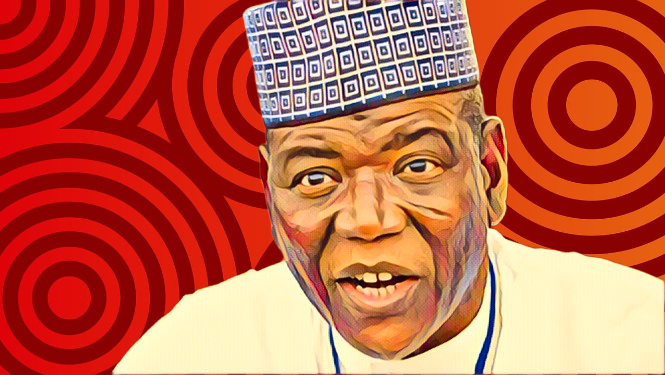Former Jigawa State Governor Sule Lamido has shared details from his memoir that shed light on a potential political rift between the late President Umaru Musa Yar’Adua and former President Olusegun Obasanjo.
In his autobiography, Being True to Myself, Lamido revealed concerns over how Yar’Adua responded to the National Assembly’s probe into the $16 billion National Integrated Power Project.
The debate, led by a close ally of Yar’Adua, appeared to portray Obasanjo as corrupt.
Lamido recalled warning Yar’Adua about the political consequences of such actions. “It gave Nigerians the impression that Obasanjo stole the funds,” he said.
When confronted, Yar’Adua distanced himself, claiming the legislature was independent.
Lamido believed this created a false narrative against Obasanjo, who had backed Yar’Adua’s rise to power.
A phone call and a shock that pushed Lamido to confront
Lamido further described a startling incident involving Yar’Adua’s Chief Security Officer, Tilde. While in Dutse, Lamido received a call suggesting he was aligning with Obasanjo, then in Ota.
“To my disbelief, he said, ‘I thought you were in Ota with your President,’” Lamido recalled. Enraged, Lamido responded harshly, refusing what he saw as attempted blackmail related to a petition.
Believing the matter serious, Lamido immediately flew to Abuja. He stormed the presidential villa and reprimanded Tilde in front of other staff members.
“Your principal would not be where he is without Obasanjo,” he reportedly reminded them.
Lamido pleads Yar’Adua over Obasanjo to show gratitude
When Lamido finally met Yar’Adua, he appealed to the president not to engage in hostilities with Obasanjo. “Consumed by emotion, I said, ‘Sir, in the name of God, do not fight Obasanjo,’” he wrote.
Lamido reminded the president of Obasanjo’s role in securing his presidency, urging respect and loyalty. In response, Yar’Adua reassured him.
He summoned his ADC and asked what instructions had been given regarding Obasanjo. The ADC confirmed that Obasanjo was to be granted full cooperation.
“Are you comforted now?” Yar’Adua asked. Lamido replied, “Yes, sir,” before taking his leave.
Lamido’s account paints a vivid picture of internal political dynamics in Nigeria’s top leadership, reflecting loyalty, tension, and the importance of political gratitude.



